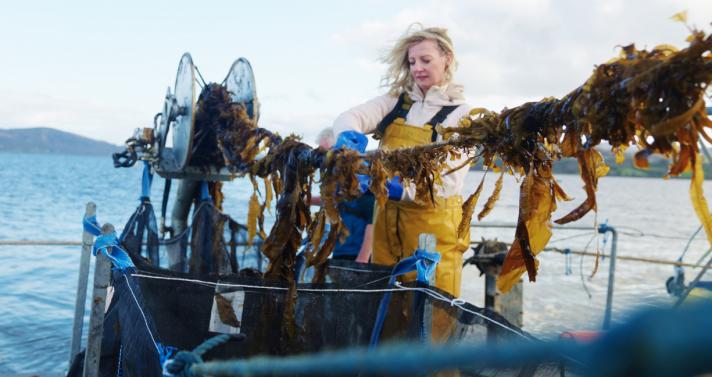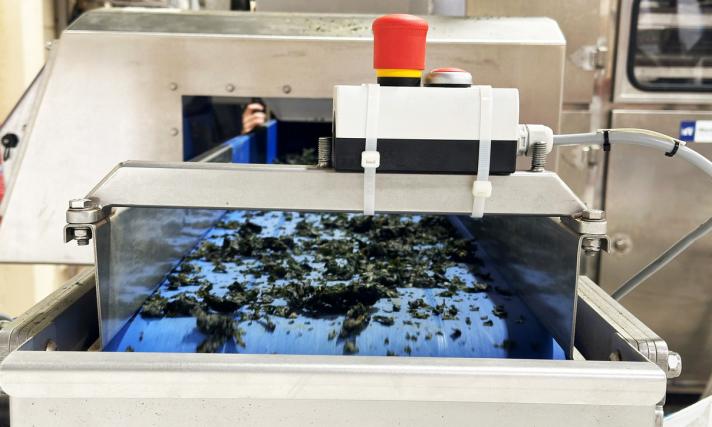Ireland has a long history of harvesting seaweed, or kelp, dating back to the 17th century. Global demand for seaweed is increasing exponentially. Recognising the potential, The Seaweed Company established a seaweed farm and expanded to include Ireland’s first dedicated seaweed processing facility.
Fresh-farmed and processed, locally
Mulroy Bay in Donegal is a sheltered sea loch that is home to a growing aquaculture ecosystem. Alongside seaweed farming, it is home to several mussel and salmon aquaculture sites, and local fishers hand-dive for scallops and native oysters.
The bay has 13 naturally occurring seaweed species. The Seaweed Company identified Alaria (often referred to as Atlantic Wakame) as a good candidate for seaweed aquaculture.
Lorraine Gallagher, General Manager of the processing facility, teamed up with The Seaweed Company to diversify their site on the bay. Lorraine’s family has a shellfish business in the area that has produced scallops for over 30 years. Lorraine leveraged her local know-how and training as a phycologist to open the seaweed processing facility, the first in Ireland.
Fast drying before shipping preserves seaweed quality
Once harvested and removed from the water, seaweed deteriorates quickly. At The Seaweed Company’s processing site in Donegal, the freshly harvested seaweed is cleaned, shredded and processed in a fast-drying machine. In less than three hours from harvesting, the seaweed is ready for shipping.
Seaweed is good for meat products and the environment
The processed seaweed is primarily used in SeaMeat®, a meat substitute added to products like beef burgers. Butchers and meat producers replace 25% of the meat with seaweed, naturally seasoning the meat and adding texture.
The addition of seaweed can increase the shelf life of meat products by up to one day, reducing food waste. It also reduces the CO2 emissions associated with meat products, making them more environmentally friendly.
Seaweed is a natural in diverse sectors
The team plans to develop new products for other sectors,including horticulture and pharmaceuticals, while expanding their growing portfolio of food and beverage products. The latter already includes chocolate and a range of soft drinks using other seaweeds.
EU funding supports growing seaweed venture
Lorriane Gallagher underlines the importance of EU support: “Without EU funding, this project would not have been possible. The funding has allowed us to scale up our production, as well as develop our new processing facility which allows us to dry the seaweed quickly so it can be transported and used in food production.”


